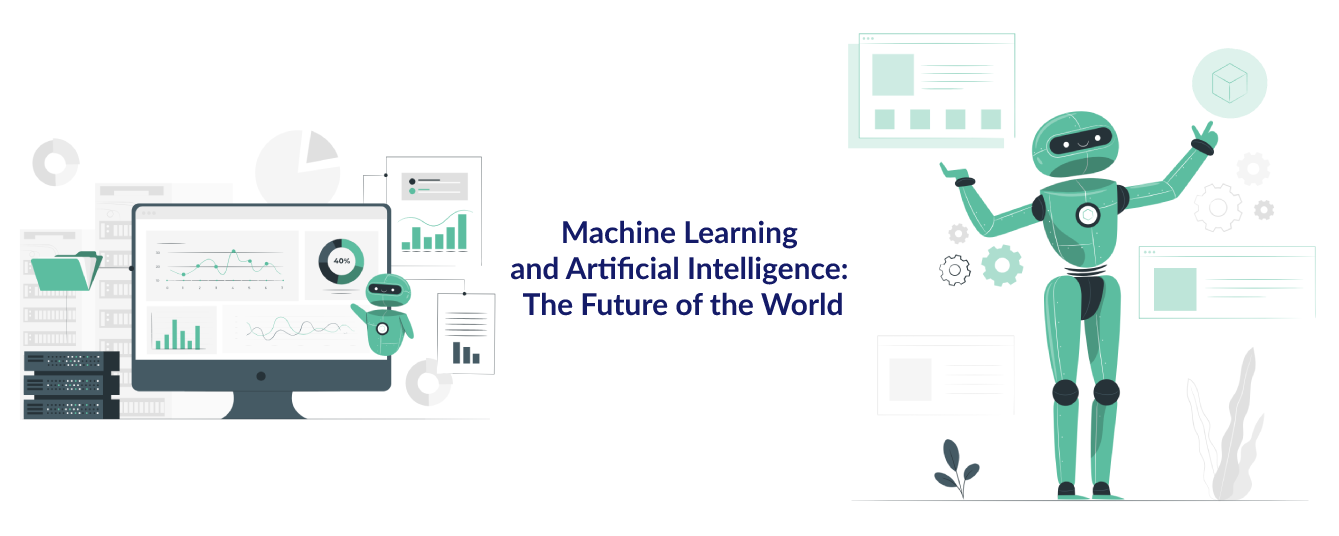Even though artificial intelligence has been around since the ‘50s, we are only now seeing its development at unprecedented rates. So what makes it such an important topic? How will it affect our daily lives? And why should we care? In this article, we will examine the history of AI and its current role in the world around us to gain a better understanding of what machine language means and how artificial intelligence will affect our world today and in the future.
Why should we care about AI?
In a world that is becoming increasingly digitized, it’s no surprise that artificial intelligence (AI) is becoming more prevalent. After all, AI has the ability to make our lives easier by automating tasks and making decisions for us. For example, AI can help us sort through data faster than we ever could on our own. And as the internet of things (IoT) continues to grow, so does the need for AI. That’s because IoT devices generate a lot of data that needs to be analyzed in order to be useful. This is where machine learning (ML) comes in. ML is a type of AI that is able to learn from data and make predictions about future events.
Where are we heading?
We are on the cusp of a new era where machines and humans will work together. This is made possible by advances in artificial intelligence (AI) and machine learning (ML). With these technologies, we can now create devices that are able to learn and adapt to their surroundings. For example, IoT devices can now be used to collect data about their surroundings and then use that data to improve their performance. This is just the beginning of what AI and ML can do. In the future, these technologies will become even more important as we rely on them to help us solve complex problems.
Why do you think so?
Every day, it seems, there’s a new story about how artificial intelligence (AI) is being used to do something amazing. And it’s not just in the world of science fiction anymore – AI is becoming a part of our everyday lives. From our personal assistants to the algorithms that decide what we see on social media, AI is increasingly making decisions for us. And as AI gets smarter, its capabilities are only going to grow. So what does this mean for the future of the world?
How will this impact our lives?
In the coming years, we will see more and more artificial intelligence in our daily lives. From self-driving cars to home assistants, AI is slowly becoming a part of our everyday routine. And as AI continues to evolve, so too will its impact on our lives. In the future, AI will change the way we work, live, and play. Here’s a look at how machine language and artificial intelligence will shape the world of tomorrow.
What do you mean by change?
In a rapidly developing world, it’s no surprise that technology is playing an increasingly important role in our lives. With every new invention, we find ourselves adapting to change in one way or another. Today’s world depends on artificial intelligence (AI) to function properly. From the way we drive to the way, we shop, almost everything we do involves some form of AI.
What do you think will happen to your profession in 20 years?
In 20 years, We predict that machine learning and artificial intelligence will have drastically changed the landscape of many professions. For instance, jobs that are currently done by human beings, like data entry or simple analysis, will be replaced by machines. Jobs that require human interaction, like customer service, will still be done by humans, but with the help of artificial intelligence to guide them. In my profession, We think that machine learning will assist us in making better decisions faster and more accurately.
In summary, what is your biggest worry about AI in the coming 20 years?
There is no doubt that artificial intelligence (AI) is rapidly evolving. In just a few short years, AI has advanced from being able to carry out simple tasks to becoming capable of more complex ones. This exponential growth is what worries many experts about the future of AI. They believe that AI will eventually surpass human intelligence, leading to a future where machines can control humans instead of the other way around. This could have disastrous consequences for humanity, as we would be at the mercy of machines that are far smarter than us. It is important to keep this in mind as we continue to develop AI technology and to ensure that we put safeguards in place to prevent this future from becoming a reality.
Will machines be better than humans, What if robots could become conscious, Should governments set limits on AI development?
In many ways, it seems that artificial intelligence is inevitable. With the rapid pace of technological advancement, it’s only a matter of time until machines surpass human intelligence in nearly every arena. Once that happens, what will become of humanity? Some believe that we will merge with machines, becoming cyborgs or even immortal beings. Others believe that robots will eventually become conscious and take over the world entirely. While these scenarios may seem far-fetched, they are not outside the realm of possibility. As AI continues to develop, it is important for governments to set limits on its development. Otherwise, we may find ourselves in the future that we cannot control.
Are you interested in engaging with us and growing your business to the next level? Contact us now!
